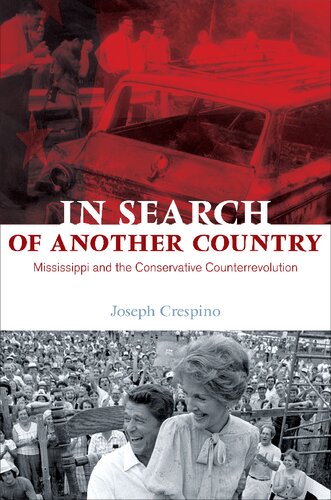

Most ebook files are in PDF format, so you can easily read them using various software such as Foxit Reader or directly on the Google Chrome browser.
Some ebook files are released by publishers in other formats such as .awz, .mobi, .epub, .fb2, etc. You may need to install specific software to read these formats on mobile/PC, such as Calibre.
Please read the tutorial at this link: https://ebookbell.com/faq
We offer FREE conversion to the popular formats you request; however, this may take some time. Therefore, right after payment, please email us, and we will try to provide the service as quickly as possible.
For some exceptional file formats or broken links (if any), please refrain from opening any disputes. Instead, email us first, and we will try to assist within a maximum of 6 hours.
EbookBell Team

0.0
0 reviewsIn the 1960s, Mississippi was the heart of white southern resistance to the civil-rights movement. To many, it was a backward-looking society of racist authoritarianism and violence that was sorely out of step with modern liberal America. White Mississippians, however, had a different vision of themselves and their country, one so persuasive that by 1980 they had become important players in Ronald Reagan's newly ascendant Republican Party.
In this ambitious reassessment of racial politics in the deep South, Joseph Crespino reveals how Mississippi leaders strategically accommodated themselves to the demands of civil-rights activists and the federal government seeking to end Jim Crow, and in so doing contributed to a vibrant conservative countermovement. Crespino explains how white Mississippians linked their fight to preserve Jim Crow with other conservative causes--with evangelical Christians worried about liberalism infecting their churches, with cold warriors concerned about the Communist threat, and with parents worried about where and with whom their children were schooled. Crespino reveals important divisions among Mississippi whites, offering the most nuanced portrayal yet of how conservative southerners bridged the gap between the politics of Jim Crow and that of the modern Republican South.
This book lends new insight into how white Mississippians gave rise to a broad, popular reaction against modern liberalism that recast American politics in the closing decades of the twentieth century.